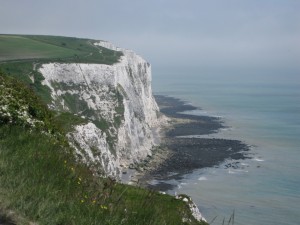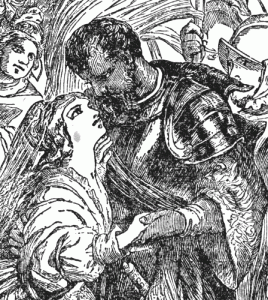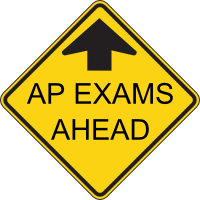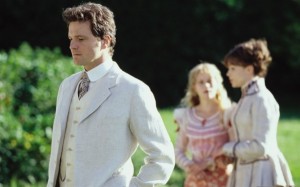 If your birthday occurs between July and December, you will be analyzing the Matthew Arnold poem “Dover Beach.” Using the TPCASTT strategy may be a helpful way to discern meaning within the poem. Ultimately, you will need to create and support an AP-style statement with information gleaned from the poem itself. Your AP statement should read as follows:
If your birthday occurs between July and December, you will be analyzing the Matthew Arnold poem “Dover Beach.” Using the TPCASTT strategy may be a helpful way to discern meaning within the poem. Ultimately, you will need to create and support an AP-style statement with information gleaned from the poem itself. Your AP statement should read as follows:
The writer (use the author’s name) employs X (articulate techniques and strategies) to reveal Y (the theme of the poem).
Here is the text of your poem:
Dover Beach
by Matthew Arnold
The sea is calm to-night.
The tide is full, the moon lies fair
Upon the straits; on the French coast the light
Gleams and is gone; the cliffs of England stand;
Glimmering and vast, out in the tranquil bay.
Come to the window, sweet is the night-air!
Only, from the long line of spray
Where the sea meets the moon-blanched land,
Listen! you hear the grating roar
Of pebbles which the waves draw back, and fling,
At their return, up the high strand,
Begin, and cease, and then again begin,
With tremulous cadence slow, and bring
The eternal note of sadness in.
Sophocles long ago
Heard it on the A gaean, and it brought
Into his mind the turbid ebb and flow
Of human misery; we
Find also in the sound a thought,
Hearing it by this distant northern sea.
The Sea of Faith
Was once, too, at the full, and round earth’s shore
Lay like the folds of a bright girdle furled.
But now I only hear
Its melancholy, long, withdrawing roar,
Retreating, to the breath
Of the night-wind, down the vast edges drear
And naked shingles of the world.
Ah, love, let us be true
To one another! for the world, which seems
To lie before us like a land of dreams,
So various, so beautiful, so new,
Hath really neither joy, nor love, nor light,
Nor certitude, nor peace, nor help for pain;
And we are here as on a darkling plain
Swept with confused alarms of struggle and flight,
Where ignorant armies clash by night.
 Please study the following words for your vocabulary test, which will be given on Wednesday, February 26.
Please study the following words for your vocabulary test, which will be given on Wednesday, February 26.

 Please study the following words for your vocabulary test, which will be given on Thursday, October 17.
Please study the following words for your vocabulary test, which will be given on Thursday, October 17.![oedipus[1]](http://teacherpress.ocps.net/wellsml/files/2012/10/oedipus1.jpg)




Thug Notes Introduction
In June 2013, Thug Notes produced its first video to YouTube. Thug Notes introduces classic works of literature with a hip-hop twist. Creators Jared Bauer and Jacob Salamon write the scripts with actor/comedian Greg Edwards hosting each episode as Sparky Sweets, PhD. The aim is to summarize and analyze classic works of literature with a hip-hop twist.
Here’s an example of the Thug Notes style applied to Harper Lee’s To Kill a Mockingbird. I’ll post the Thug Notes version of each work they cover that we read in class, but be warned! Salty language and adult themes ahead. Proceed with caution.
Comments Off on Thug Notes Introduction
Filed under AP Literature, Honors IV
Tagged as analysis, AP, books, commentary, drama, honors